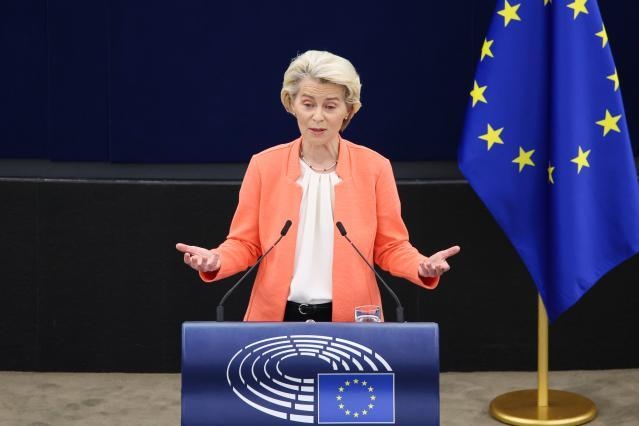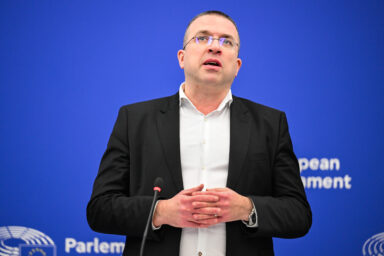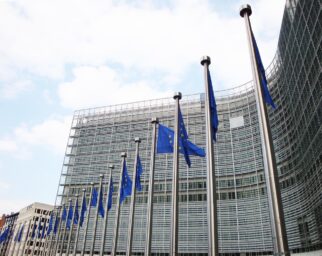Strasbourg will host the State of the Union address on 10 September. Though the Critical Medicines Act sits high on the Commission’s priority list and the impact should be overall positive, there are still a number of uncertainties.
In its newly published progress report ‘From Promise to Progress: First Year in Office’, the European Commission singled out the Critical Medicines Act (CMA) as part of its sovereignty drive. “In our quest for security and independence, we have continued to build a European health union through the Critical Medicines Act, which will incentivise pharmaceutical manufacturing in the EU,” the report says.
Back in March, the Commission presented the CMA. Parliament has now resumed work on the file, with lawmakers requesting more time for scrutiny. The deadline for amendments now runs until 19 September.
Prioritize supply to the EU market: MEP Sokol
On 1 September, MEP Tomislav Sokol (EPP/CRO) presented his report in the Committee on Public Health (SANT). He proposed to broaden the scope to investigational products. “This ensures that joint public procurement can also apply in times of crisis when new or experimental treatments may be urgently needed,” he said.
Mr Sokol demanded clearer definitions. He insisted that medicinal products of common interest must include orphan medicines and novel antimicrobial products. These, he argued, are “areas where the market often fails patients and where we must act.”
You might be interested
He urged the creation of “a list of products from third countries with no EU substitutes”. Without that information, he said, “it is inexcusable if you want to make plans, if you want to make strategies, if you want to plan the future activities in our pharmaceutical sector.”
Beneficiaries of EU support must prioritise supply to the Union market, or face penalties for non-compliance. – MEP Tomislav Sokol (EPP/CRO)
His report tightened rules for strategic projects. He said new initiatives should “avoid replicating existing or planned capacities unless clearly justified by demand.” Projects backed with EU funds must “prioritise supply to the Union market,” with penalties for non-compliance.
Sufficient funding is crucial
The Croatian member also pushed for reinforced financing, stockpiling and procurement rules. “We ensure sufficient funding by making all EU programmes under the Multiannual Financial Framework (MFF), from regional policy to Horizon Europe, available to support strategic projects,” he said.
Procurement, Mr Sokol stressed, “cannot be based on price alone”. It must include “an appropriate and predictable mix of qualitative criteria”. On stockpiling, he called for “a clear distinction between contingency stocks… and national stockpiles”. And “the creation of a union coordination mechanism” so that “no European patient is left behind because of national borders.”
The debate quickly turned to the missing Commission staff working document. Tiemo Wölken (S&D/DEU) criticised the proposal as rushed. “This file has been fast-tracked by the Commission and published without any impact assessment. Furthermore, we are still missing the staff working document. It was supposed to be published about a month ago,” he said. Commission representative Bruno Gautreis admitted that the document was “very late,” but promised swift publication.
They asked, and they got it. Two days later, the staff working document appeared, recapping the evidence base behind the Act.
Options considered and discarded
The Commission revealed that several interventions were tested but abandoned. One was EU-wide production benchmarks. It concluded that “benchmarks alone do not address the root causes of supply chain vulnerabilities or shortages”. It is also “not possible to define a single benchmark that would be applicable across the range of critical medicines”.
A capacity reservation modelled on the EU-FAB vaccine scheme was deemed “logistically difficult and cost ineffective.” A centralised EU stockpile was also rejected due to “significant logistical, operational, and financial challenges.”
Other ideas, from a real-time monitoring platform, to a supply chain “resilience score,” to new EU funding programmes or special State aid regimes, were judged unnecessary or impractical. Extending the voluntary solidarity mechanism to non-EU countries was also ruled out, with the Commission concluding there was “no structural need to extend this mechanism to third countries.”
Commission’s impact analysis
The staff document painted a broadly positive picture. Economically, the Act is “expected to have a positive impact on supply chain resilience and security by enhancing domestic production capabilities and reducing external dependencies.”
Streamlined approvals and targeted incentives should “incentivise substantial investment in EU-based manufacturing,” likely generating jobs. The competitiveness check concluded that the Act “is expected to improve EU competitiveness… as well as by supporting innovation in new manufacturing processes.”
Socially, the impact is direct. “Patients are expected to be less affected by critical medicine shortages,” while reducing shortages would “improve patients’ health, by limiting the risk of deterioration of their health status due to sub-optimal care or delayed treatment.”
A mixed picture
Health professionals would spend less time firefighting, freeing resources toward patient care. Broader access to medicines of common interest is also expected to yield strong health benefits.
On the environment, the Commission acknowledged a mixed picture. Producing more medicines in Europe, where “carbon emissions fall under the EU Emission Trading System (EU-ETS) and the environment is strongly protected against pollution,” could have “possible positive environmental impacts.” Strategic projects, however, will need to modernise facilities. Yet higher production volumes “may increase energy consumption and emissions, particularly in energy-intensive API synthesis.”
In terms of overall benefits, these are expected to be significant. The cost–benefit analysis brought clear results. “In terms of overall benefits, these are expected to be significant,” the analysis says. Any compliance costs or price effects would, the Commission argued, be offset by the anticipated savings resulting from a reduction of shortages costs.
A heated debate
These tensions had already dominated the debate in the Committee on the Environment, Climate and Food Safety (ENVI). The ENVI rapporteur Michele Picaro (ECR/ITA) stressed the need to “avoid any overlap with environmental and chemical legislation. To safeguard access to the medicines we’re dealing with and guarantee high environmental standards at the same time.”
The EPP shadow rapporteur András Tivadar Kulja (EPP/HUN), demanded action on the aggregate impact of environmental and chemical legislation including the REACH framework. Renew echoed this, backing amendments to avoid unintended disruption resulting from overlaps in environmental and chemical legislation.
Others warned against cutting corners. Mr Wölken insisted that compromising environmental standards must not be tolerated. He added that “quality, safety and environmental integrity can never be compromised in the name of speed.”











